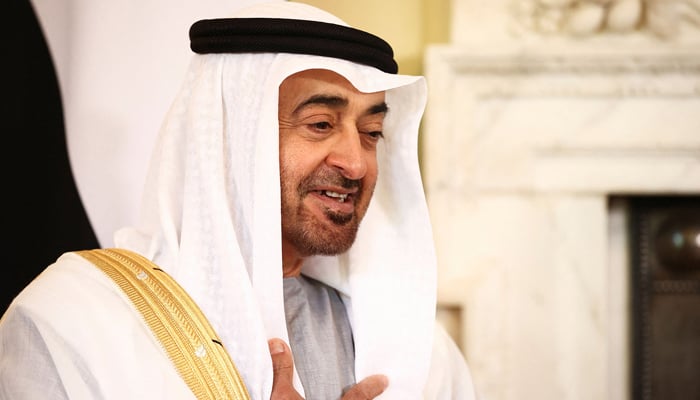Unequal world
Meanwhile, the family that owns Hermes continues to grow, with focus, being on creating generational wealth
A world increasingly divided between the rich and the poor – with the gap widening almost annually – has once again witnessed an astonishing $1.5 trillion increase in the wealth of the top five richest empires. This is no small sum. In fact, for some countries, this sum is bigger than their GDP; for example, Pakistan whose GDP is a paltry $348 billion is among these countries. In a world that wants to switch to renewable energy and phase out of fossil fuels to save the planet from further chaos, the petro-money of the Middle East has put two families from the region among the world’s five richest. The Al Nahyans of Abu Dhabi have topped the 2023 list put out by Bloomberg of family fortunes, with a total worth of $305 billion. The Al Thanis of Qatar also added significantly to this wealth. For the first time in five years, the Waltons of Walmart are no longer the richest group in the world. Meanwhile, the family that owns Hermes continues to grow, with the focus, according to experts, being on creating generational wealth. Unfortunately, the growing influence of the Middle East is not being put to use politically, for example by using its clout as a reminder that the Palestinians have powerful friends. The same is true of Yemen, where children starve as a result of poverty which has built up over the decades and worsened by almost a decade-long war in the country.
The report is a stark reminder of wealth concentration in the hands of a few. If this money earned from oil, fashion design, retail sales, and other areas was spread out more equitably, many would benefit hugely. Inequality in the world is widening, leading to some important questions. Are the world’s riches reserved only for a small number of people? Shouldn’t there be some mechanism to offer more opportunities and a greater division of wealth to the world’s 99 per cent who had a difficult financial year? It is almost impossible to imagine the scale of fortune a few families have amassed. The arrival of the oil-rich Gulf countries on the scene adds in some way to the complications but also depicts a changing world where the West is not necessarily the largest power holder at least in financial terms.
But the list exposes an ugly reality: we live in a space where some can stud their coats with the most precious diamonds while others cannot place a piece of bread on their tables. There is something wrong with a system that allows and even encourages this. Of course, individual families have strategized well to earn their money. But others are not at fault here because they are deliberately kept away from resources that can help them generate income. Such a world is doomed to remain unequal.
-
 Jay-Z Shares Bold Advice With Bad Bunny For NFL Super Bowl Halftime Show Appearance
Jay-Z Shares Bold Advice With Bad Bunny For NFL Super Bowl Halftime Show Appearance -
 Epstein Probe: Bill, Hillary Clinton Call For Public Testimony Hearing
Epstein Probe: Bill, Hillary Clinton Call For Public Testimony Hearing -
 Brooklyn Beckham Considers Adoption As Nicola Peltz Can't Carry A Baby
Brooklyn Beckham Considers Adoption As Nicola Peltz Can't Carry A Baby -
 Expert Discusses 'complications' Of Measles Outbreak
Expert Discusses 'complications' Of Measles Outbreak -
 Kaley Cuoco Recalls Her Divorce With Karl Cook: 'I Was Gonna Die'
Kaley Cuoco Recalls Her Divorce With Karl Cook: 'I Was Gonna Die' -
 Celine Dion Reveals Music She's Listening To Lately
Celine Dion Reveals Music She's Listening To Lately -
 HR Exec Kristin Cabot To Speak At Crisis PR Conference After Coldplay Incident
HR Exec Kristin Cabot To Speak At Crisis PR Conference After Coldplay Incident -
 Why Travis Kelce Says Taylor Swift Has Made Him 'so Much Better'?
Why Travis Kelce Says Taylor Swift Has Made Him 'so Much Better'? -
 Halle Berry Credits This Hairstyle With Launching Her Acting Career
Halle Berry Credits This Hairstyle With Launching Her Acting Career -
 Hailee Steinfeld Spills Her 'no-phone' Rule With Husband Josh Allen
Hailee Steinfeld Spills Her 'no-phone' Rule With Husband Josh Allen -
 Bowen Yang Gets Honest About Post SNL Life: 'It’s An Adjustment'
Bowen Yang Gets Honest About Post SNL Life: 'It’s An Adjustment' -
 Charlize Theron Delivers Strong Message At 2026 Winter Olympics Opening Ceremony
Charlize Theron Delivers Strong Message At 2026 Winter Olympics Opening Ceremony -
 Lil Jon Reacts To Son Nathan Smith's Death: 'Devastated'
Lil Jon Reacts To Son Nathan Smith's Death: 'Devastated' -
 Bianca Censori Reveals Where She And Kanye West Stand On Having Children Together
Bianca Censori Reveals Where She And Kanye West Stand On Having Children Together -
 Taylor Swift Hypes Olympic Athletes In Surprise Video Message
Taylor Swift Hypes Olympic Athletes In Surprise Video Message -
 Timothy Busfield Charged With Four Counts Of Child Sexual Abuse
Timothy Busfield Charged With Four Counts Of Child Sexual Abuse




